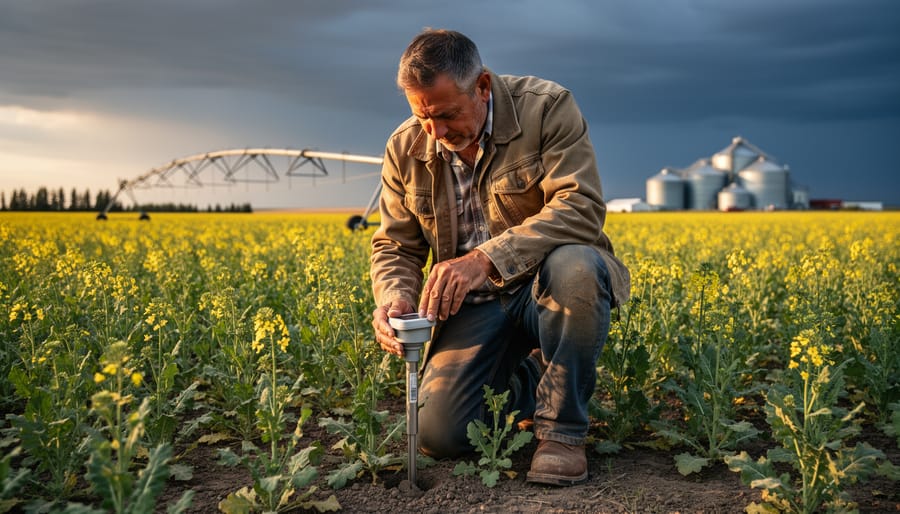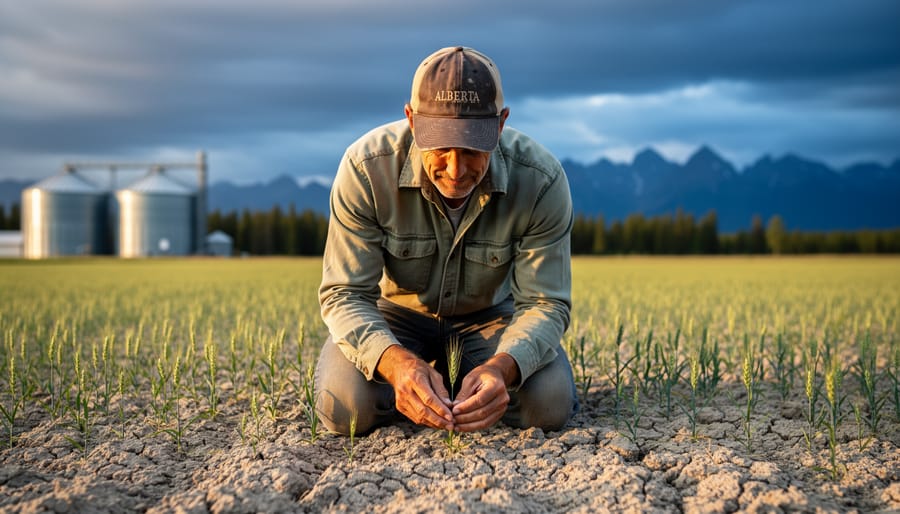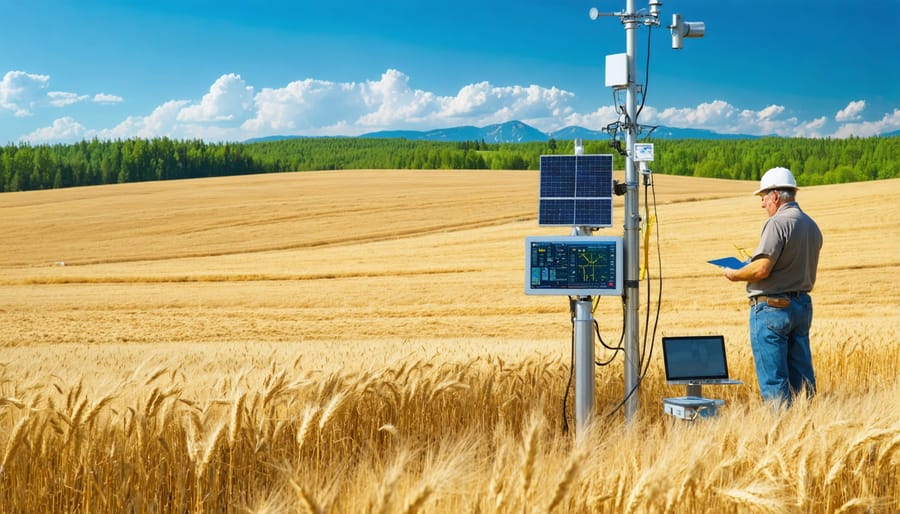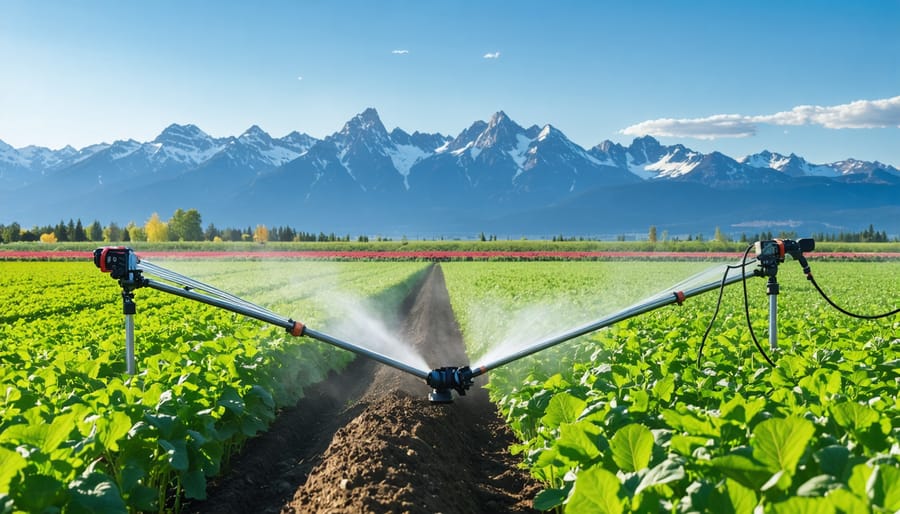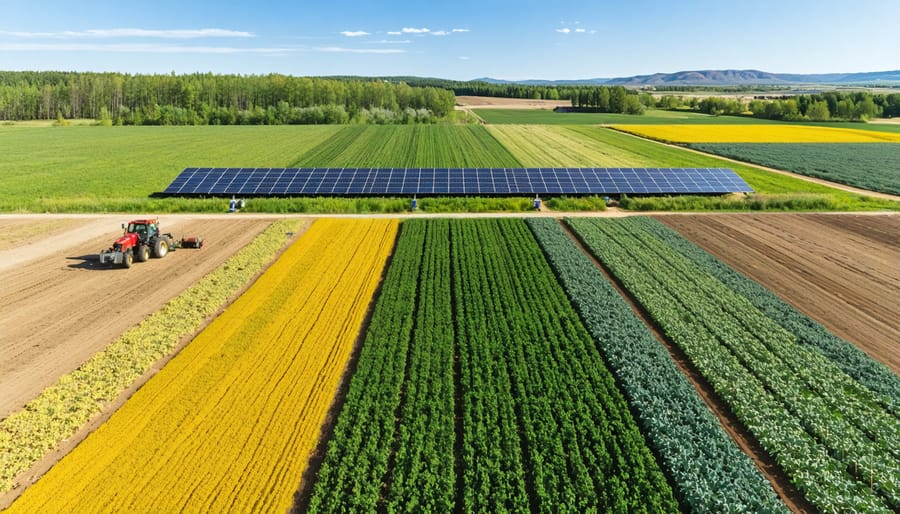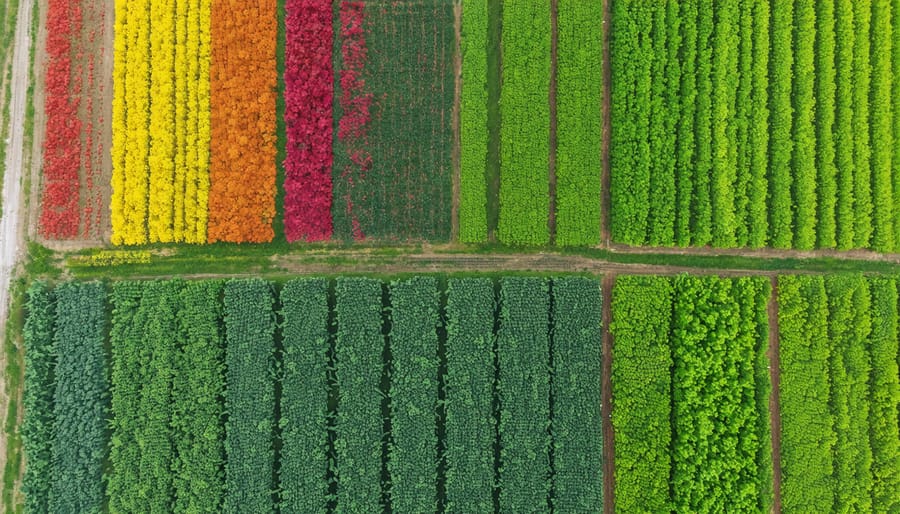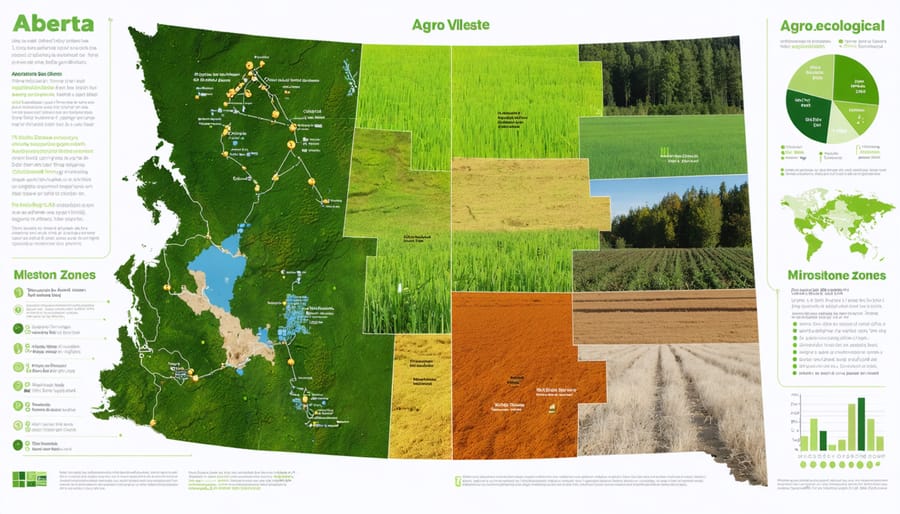Embrace climate-smart agriculture – a transformative approach that empowers farmers to boost productivity, build resilience, and protect our planet. In Alberta, the heartland of Canadian agriculture, innovative growers are leading the charge by adopting practices that reduce greenhouse gas emissions, conserve water, and regenerate soils. From precision nutrient management to cover cropping and rotational grazing, these forward-thinking strategies are not only good for the environment – they also make economic sense. By harnessing the power of nature and technology, climate-smart farmers are securing a sustainable future for their families, their communities, and our global food supply. Join the movement and discover how you can be part of the solution, one field at a time.
The Challenges Faced by Alberta Farmers
Drought and Water Scarcity
Climate change is exacerbating drought conditions and water scarcity in Alberta, posing significant challenges for farmers. Rising temperatures and more frequent extreme weather events are leading to reduced precipitation and increased evaporation rates. As a result, soil moisture levels are declining, and water availability for irrigation is becoming more limited. These factors directly impact crop growth and yields, as plants struggle to access the water they need to thrive. Farmers are facing the difficult reality of having to produce more with less water, while also managing the risks associated with prolonged drought periods. To adapt, many are turning to water-efficient irrigation systems, drought-resistant crop varieties, and soil management practices that help retain moisture. By implementing these climate-smart strategies, Alberta farmers can build resilience in the face of water scarcity and safeguard their livelihoods for the future.
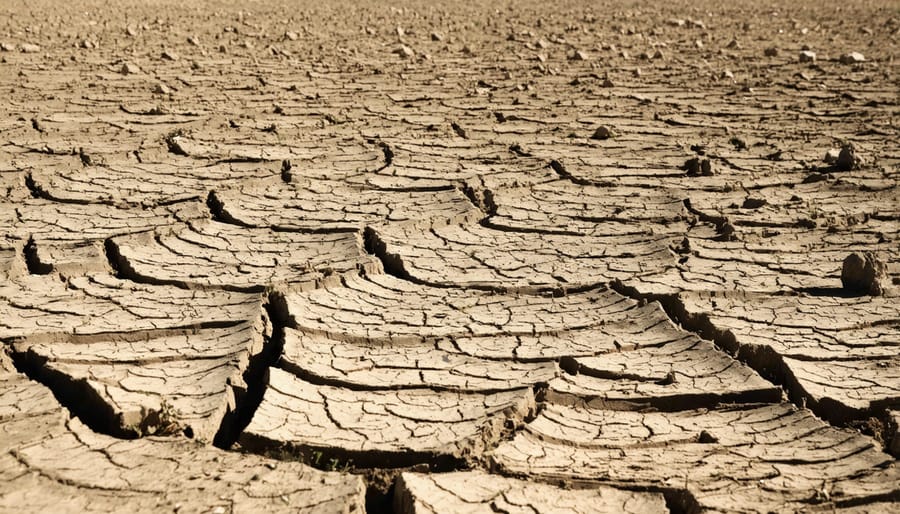
Soil Health Decline
Traditional farming practices, such as intensive tillage and monocropping, can lead to soil health decline over time. Tillage disrupts soil structure, reduces organic matter, and increases erosion risk. Monocropping depletes soil nutrients and increases pest and disease pressure, necessitating higher inputs of fertilizers and pesticides. As soil health declines, farmers may experience reduced crop yields, increased input costs, and greater vulnerability to drought and extreme weather events. In the long term, this can threaten the sustainability and profitability of farming operations. Adopting practices like reduced tillage, cover cropping, and crop rotation can help maintain and improve soil health, ensuring long-term productivity and resilience. By investing in soil health, farmers can build a foundation for a more sustainable and climate-smart agricultural system that benefits both their bottom line and the environment.
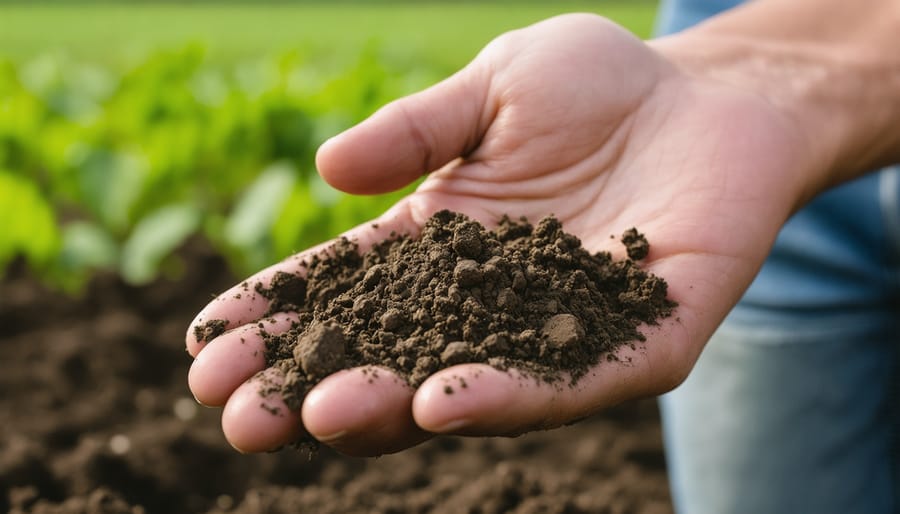
Climate-Smart Agriculture Practices
Conservation Tillage
Conservation tillage, including reduced tillage and no-till farming, is a key practice in climate-smart agriculture that offers numerous benefits for soil health and carbon sequestration. By minimizing soil disturbance, these techniques help to maintain soil structure, reduce erosion, and improve water infiltration, leading to more resilient and productive farmland. When crop residues are left on the surface, they act as a protective mulch, shielding the soil from wind and water erosion while also conserving moisture and moderating temperature fluctuations. Over time, the decomposition of these residues contributes to the buildup of organic matter, enhancing soil fertility and supporting a diverse community of beneficial microorganisms. Importantly, conservation tillage practices also play a vital role in sequestering atmospheric carbon in the soil. By minimizing the exposure of soil organic matter to oxygen, reduced tillage and no-till systems slow down the rate of decomposition, effectively locking carbon in the soil for longer periods. This not only helps to mitigate climate change but also improves the soil’s capacity to retain nutrients and moisture, leading to healthier, more resilient crops and reduced reliance on external inputs. As Alberta farmers continue to adopt conservation tillage practices, they are not only safeguarding their land for future generations but also contributing to the global effort to combat climate change.
Cover Cropping
Cover cropping is a powerful tool in the climate-smart agriculture toolkit. By planting cover crops between main crop cycles, farmers can protect and nourish their most valuable resource: healthy soil. Cover crops act as a living mulch, shielding the soil from erosion caused by wind and rain. Their roots hold the soil in place, preventing valuable topsoil from washing or blowing away.
But the benefits go beyond just protecting the soil surface. As cover crops grow, they add organic matter to the soil, improving its structure, fertility, and water-holding capacity. This is especially important in Alberta’s semi-arid climate, where every drop of moisture counts. Cover crops also suppress weeds by outcompeting them for space, light, and nutrients, reducing the need for herbicides.
When cover crops are terminated, either by winter kill or mechanical means, they release nutrients back into the soil, acting as a green manure for the next main crop. This can reduce the need for synthetic fertilizers, saving farmers money and reducing greenhouse gas emissions. With a well-planned cover cropping strategy, Alberta farmers can build soil health, increase resilience to drought and extreme weather, and contribute to a more sustainable agricultural future.
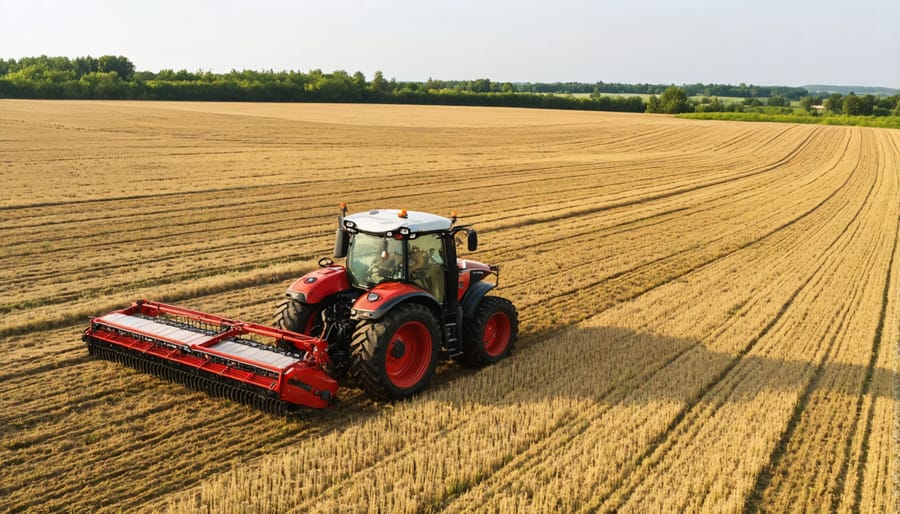
Precision Agriculture
Precision agriculture technologies are revolutionizing the way farmers manage their crops and inputs, enabling them to optimize resources while minimizing environmental impact. By leveraging GPS and variable rate application (VRA) systems, farmers can apply the right amount of fertilizer, water, and pesticides precisely where needed. This not only reduces waste and runoff but also improves crop yields and quality.
For example, VRA technology allows farmers to create detailed maps of their fields, accounting for variations in soil type, nutrient levels, and topography. They can then use this data to tailor input application rates across the field, ensuring each area receives the optimal amount. This targeted approach reduces over-application and helps prevent nutrient leaching into waterways.
GPS-guided equipment also enables farmers to minimize soil compaction by following precise routes through the field, reducing the number of passes required. This preserves soil structure, improves water infiltration, and enhances carbon sequestration. Additionally, precision agriculture tools like drones and satellite imagery can help farmers monitor crop health, detect issues early, and make data-driven decisions to optimize management practices.
By adopting precision agriculture technologies, Alberta farmers can not only boost their bottom line but also contribute to a more sustainable and climate-resilient agricultural system.
Resources and Support for Alberta Farmers
Educational Workshops
The Organic Agriculture Centre of Canada is excited to announce a series of upcoming educational workshops focused on climate-smart agriculture practices. These hands-on training events will be led by experienced farmers and agricultural experts who have successfully implemented sustainable strategies on their own farms.
Attendees will learn about a range of topics, including soil health management, water conservation techniques, natural pest control methods, and renewable energy solutions. Each workshop will feature practical demonstrations, interactive discussions, and opportunities to network with like-minded farmers from across the Alberta region.
Our first workshop, “Building Resilient Soils,” will take place on June 15th at the Lakeside Community Centre. Participants will discover how cover cropping, reduced tillage, and composting can improve soil structure, fertility, and carbon sequestration. They’ll also receive guidance on creating a customized soil health plan for their own farms.
Future workshops will delve into topics such as precision irrigation, agroforestry, and on-farm renewable energy systems. By attending these events, farmers will gain the knowledge and skills needed to adapt to a changing climate while enhancing the sustainability and profitability of their operations.
We encourage all interested farmers and agricultural professionals to join us for these informative and inspiring workshops. Together, we can build a more resilient and climate-smart agricultural community in Alberta.
Expert Advice and Mentorship
Adopting climate-smart agriculture practices can be challenging, but Alberta farmers don’t have to navigate this transition alone. A wealth of expert advice and mentorship is available to support farmers every step of the way. Experienced practitioners and researchers offer personalized guidance tailored to each farm’s unique needs and goals.
Through one-on-one consultations, workshops, and on-farm demonstrations, experts help farmers identify the most effective strategies for their specific context. They provide insights on optimizing nutrient management, implementing conservation tillage, selecting appropriate cover crops, and integrating agroforestry systems. Mentors also guide farmers in monitoring soil health, water efficiency, and greenhouse gas emissions to track progress and refine their approach over time.
By tapping into this network of knowledge and support, Alberta farmers can accelerate their adoption of climate-smart practices while minimizing risk and maximizing benefits. Experts not only offer technical advice but also connect farmers with funding opportunities, cost-sharing programs, and other resources to make the transition more feasible and rewarding.
Ultimately, this collaborative approach fosters a vibrant community of climate-smart agriculture practitioners across Alberta. As more farmers share their successes and lessons learned, they inspire and empower others to join the movement towards a more sustainable and resilient agricultural future.
Conclusion
In conclusion, climate-smart agriculture offers a promising path forward for Alberta farmers to build resilience, reduce their environmental impact, and contribute to global climate change mitigation efforts. By adopting practices such as conservation tillage, cover cropping, precision agriculture, and agroforestry, farmers can improve soil health, reduce greenhouse gas emissions, and enhance the overall sustainability of their operations. Moreover, embracing renewable energy solutions and exploring opportunities for carbon sequestration can further strengthen their position as climate leaders.
As we have seen, Alberta farmers are already making significant strides in this direction, with many pioneering innovative approaches and collaborating with researchers and industry partners to advance climate-smart practices. From the adoption of no-till farming to the transition to organic production, there are numerous examples of farmers taking bold steps to align their operations with the principles of climate-smart agriculture.
However, to truly realize the potential of climate-smart agriculture, we need the engagement and support of the entire agricultural community. This includes not only farmers but also researchers, policymakers, and consumers who value sustainably produced food. By working together, sharing knowledge, and investing in the necessary resources and infrastructure, we can create a more resilient and climate-friendly agricultural system that benefits everyone.
If you’re an Alberta farmer interested in adopting climate-smart practices, now is the time to take action. Seek out information, attend workshops and events, and connect with like-minded individuals in your community. Together, we can build a brighter, more sustainable future for agriculture in Alberta and beyond.


